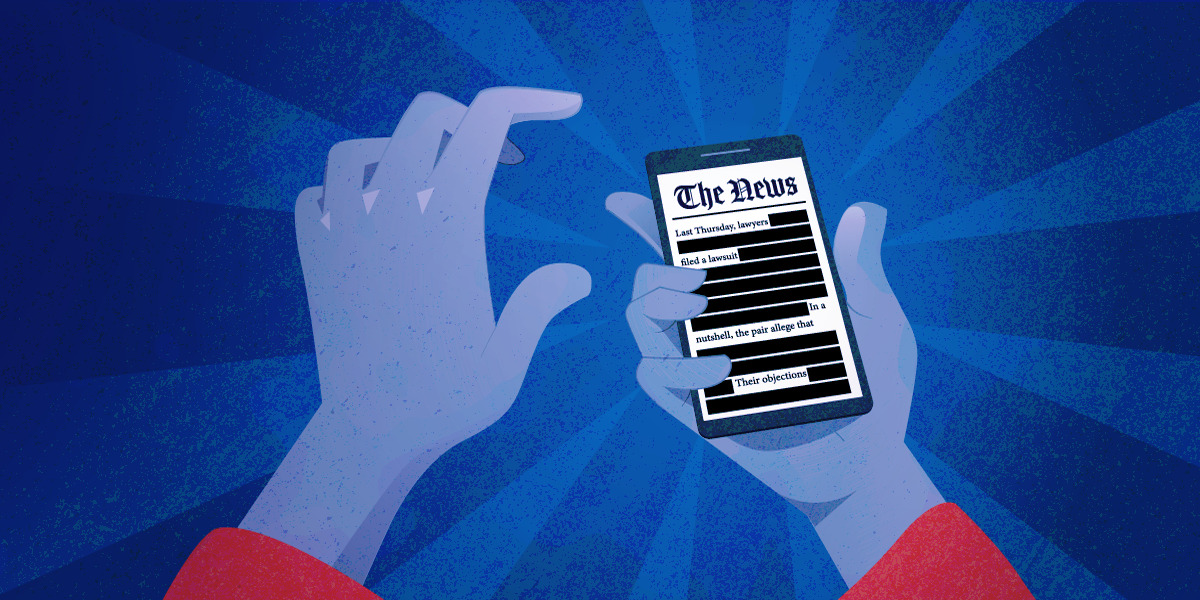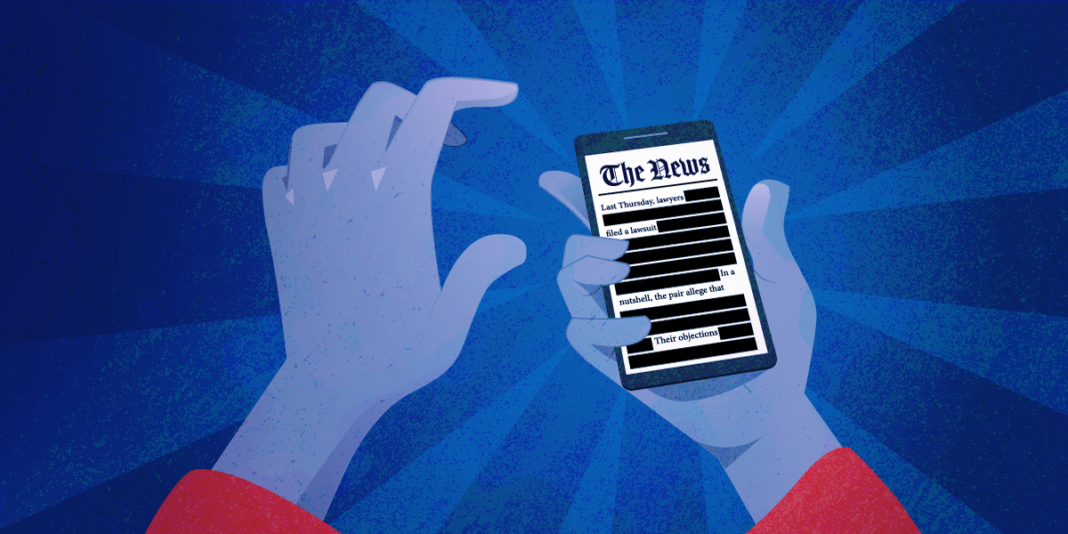
Our government shouldn’t be spying on journalists. Nor should law enforcement agencies force journalists to identify their confidential sources or go to prison.
To fix this, we need to change the law. Now, we’ve got our best chance in years. The House of Representatives has passed the Protect Reporters from Exploitive State Spying (PRESS) Act, H.R. 4250, and it’s one of the strongest federal shield bills for journalists we’ve seen.
Tell Congress To Pass the PRESS Act Now
The PRESS Act would do two critical things: first, it would bar federal law enforcement from surveilling journalists by gathering their phone, messaging, or email records. Secondly, it strictly limits when the government can force a journalist to disclose their sources.
Since its introduction, the bill has had strong bipartisan support. And such “shield” laws for reporters have vast support across the U.S., with 49 states and the District of Columbia all having some type of law that prevents journalists from being forced to hand over their files to assist in criminal prosecutions, or even private lawsuits.
While journalists are well protected in many states, federal law is currently lacking in protections. That’s had serious consequences for journalists, and for all Americans’ right to freely access information.
Multiple Presidential Administrations Have Abused Laws To Spy On Journalists
The Congressional report on this bill details abuses against journalists by all of the past three Presidential administrations. Federal law enforcement officials improperly acquired reporters’ phone records on numerous occasions since 2004, under both Democratic and Republican administrations.
On at least 12 occasions since 1990, law enforcement threatened journalists with jail or home confinement for refusing to give up their sources; some reporters served months in jail.
Elected officials must do more about these abuses than preside over after-the-fact apologies.
PRESS Act Protections
The PRESS Act bars the federal government from surveilling journalists through their phones, email providers, or other online services. These digital protections are critical because they reflect how journalists operate in the field today. The bill restricts subpoenas aimed not just at the journalists themselves, but their phone and email providers. Its exceptions are narrow and targeted.
The PRESS Act also has an appropriately broad definition of the practice of journalism, covering both professional and citizen journalists. It applies regardless of a journalist’s political leanings or medium of publication.
The government surveillance of journalists over the years has chilled journalists’ ability to gather news. It’s also likely discouraged sources from coming forward, because their anonymity isn’t guaranteed. We can’t know the important stories that weren’t published, or weren’t published in time, because of fear of retaliation on the part of journalists or their sources.
In addition to EFF, the PRESS Act is supported by a wide range of press and rights groups, including the ACLU, the Committee to Protect Journalists, the Freedom of the Press Foundation, the First Amendment Coalition, the News Media Alliance, the Reporters Committee for Freedom of the Press, and many others.
Our democracy relies on the rights of both professional journalists and everyday citizens to gather and publish information. The PRESS Act is a long overdue protection. We have sent Congress a clear message to pass it; please join us by sending your own email to the Senate using our links below.
Tell Congress To Pass the PRESS Act Now
Source: eff.org



